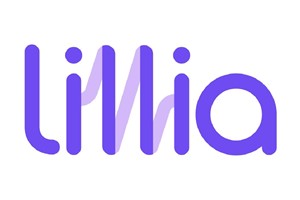DXY is the latest victim of a polarized social media environment in China, where scientific debates are increasingly becoming ideological conflicts.
China has censored DXY, the country’s leading health information platform. On August 9, DXY fell silent across social media, where it boasts over 80 million followers. Five of its Weibo accounts were suddenly suspended with a vague explanation that they had violated “relevant laws and regulations,” while its accounts on WeChat and Douyin (the domestic version of TikTok) stopped publishing.
Neither these social media platforms nor DXY have released any public statement on what caused the suspension, but Nikkei Asia reported that the order came from regulators and won’t end without official approval.
The suspension has met with a gleeful social reaction among nationalist bloggers, who accuse DXY of receiving foreign funding, bashing traditional Chinese medicine, and criticizing China’s health-care system.
DXY is one of the front-runners in China’s digital health startup scene. It hosts the largest online community Chinese doctors use to discuss professional topics and socialize. It also provides a medical news service for a general audience, and it is widely seen as the most influential popular science publication in health care.
In April 2022, DXY published an article about Lianhua Qingwen, a modern TCM product that has been distributed by the Chinese government as a treatment for covid-19. In the now-deleted article, the DXY authors cautioned that the medicine has never been properly tested in a clinical trial, and pointed out that some of the ingredients are banned in other countries.
The article, widely read and circulated, caused the value of the pharmaceutical company behind Lianhua Qingwen, Shijiazhuang Yiling Pharmaceutical, to fall by $1.05 billion on the stock market. To most health-care professionals, the article was reasonable and uncontroversial. But it made DXY a target for TCM supporters. Since then, DXY has been accused of colluding with Western pharmaceutical companies like Pfizer, which manufactures the covid-19 treatment Paxlovid, to defame TCM. TCM supporters celebrated the suspension of DXY’s accounts as proof of the platform’s wrongdoings.
Just as in the US, certain public health topics have become heavily politicized in China, including covid-19. Choosing a side in scientific debates in China is oftentimes equated to choosing a side in the ideological divide between China and the West.
Although DXY is the most prominent example, it’s not the first popular science publication to fall victim to social media campaigns in China. Several popular digital science publications and video channels, like Elephant Magazine and Paperclip, have been trolled and targeted by nationalist influencers for receiving funding from foreign NGOs and publishing content that paints China in a bad light. These publications either dissolved or disappeared from social media after they were censored.
DXY’s supporters fear it could go the same way.
“This is the best domestic health education platform. It has contributed greatly to the popularization of evidence-based medicine,” Wang Zhian, a Chinese journalist whose social media accounts were censored in 2019 before he emigrated to Japan, wrote on Twitter. “I hope it can survive.”
By Zeyi Yang













